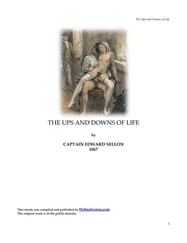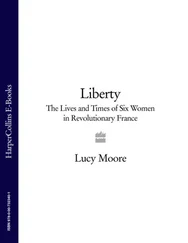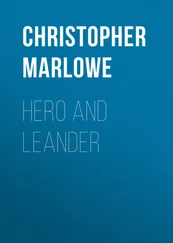Of the four men who arrived at Eleanor Bull’s on the morning of Wednesday, 30 May 1593, two were known to her. The poet had been coming in every morning at ‘the tenth hour before noon’ for the past ten days. No reason was given. He simply stayed for an ale, then left. She knew not to ask any questions. It was something to do with Sir Robert Cecil. She was to send Cecil a message ‘incontinent’ (immediately) if the poet did not appear. She didn’t like Sir Robert. An ambitious little bunch-backed toad, she thought, and had said as much to the poet. She was generally wise enough to keep such opinions to herself, but she had liked the poet, and he seemed to hold no high opinion of Sir Robert himself.
She may well have heard of Christopher Marlowe before he started appearing daily on her doorstep. Just a few years earlier his play Tamburlaine had been the talk of London, even in respectable circles, and he had followed it with further successes. But then, in Elizabethan times, it was the theatre company not the playwright that took the credit, and a play’s title not its author that achieved renown. If the name Kit Marlowe was familiar to her, it was more likely that she had heard it murmured during quiet conversations under her own roof.
The second man she knew better, though not always by the same name. Robert Poley was a frequent visitor – a university man with a flattering tongue; a king of smiles and a beguiler of women. ‘Sweet Robyn’ they called him. Lately, he was close with Sir Robert, and seemed to have some position of control. He frequently arrived to collect packages from other visitors, or (it seemed) to pass on instructions or make introductions. Often he had about him large amounts of good gold. In the past few months he had been travelling a lot to the Low Countries. Word slipped out about who was boarding which ship, even when coins closed lips and eyes. The other two men, she was to learn later, were Ingram Frizer and Nicholas Skeres. Of them she could say nothing, except that Skeres was most certainly not a gentleman.
They had come at about ten o’clock. The poet and Frizer arrived together. Sweet Robyn and Skeres were there to meet them. She had given them a room apart, as asked. They talked ‘in quiet sort together’ most of the day, but this was not unusual. Eleanor Bull was accustomed to the hushed back-and-forth tones as agents imparted their information. She gave them a passable lunch: pottage, neat’s-tongue pie, a little cold lamb (‘goode from Easter to Whitsun’ – she had just made it, Whitsun in 1593 fell on the following Sunday), a ‘sallat’ of boiled onions served with vinegar, oil and pepper, capon with prunes, currants and dates, and as a treat ‘baken stagge’ (another May favourite, probably gained through one of her connections – there were royal hunting grounds at Lewisham and Blackheath).* That would customarily have been at eleven o’clock. Later they walked in her garden, staying there until six, when they came back to the same room for the supper she had laid out. Sweet Robyn took her aside to talk about the bill. She didn’t see the others come in.
The poet Marlowe was resting when the supper was cleared. There was one bed in the room, against the wall. In front of it, Robert Poley and Ingram Frizer were seated playing ‘tables’ (backgammon). Skeres was drinking ale. Later, voices were raised and there were sounds of a scuffle; she was called in to the room. Frizer had two gashes on his head and the poet was dead. He had been stabbed above the eye, and his face was covered in blood. (The blade severed the internal carotid artery, and probably also caused an air embolism.) Sweet Robyn hastened to calm her. It was too late for a surgeon, and he didn’t call the watch. Instead, they waited for the coroner.
It was thirty-six hours before a coroner came. Not the district man, but William Danby, ‘Coroner of the household of our … lady the Queen’. Normally, such a grand official wouldn’t be bothered for a minor stabbing, but Danby had jurisdiction ‘within the Verge’, defined as the area within a twelve-mile radius of the body of the sovereign. Eleanor Bull’s house was under a mile from the palace at Greenwich, and the Queen was in residence. At the trial, sixteen mostly local men made up the jury: gentlemen and yeomen, a couple of bakers, a grocer and the miller of Deptford. They were told how ‘malicious words’ were uttered between ‘Christopher Morley’ (Marlowe) and Ingram Frizer about the ‘payment of a sum of pence, that is, le recknynge ’, and that Marlowe, who was lying down, ‘moved in anger’ against Frizer, who was sitting at the table with his back to the bed, with Poley and Skeres sitting on either side. Drawing Frizer’s dagger ‘which was at his back’, Marlowe attacked him from behind, wounding him twice on the head (‘two wounds … of the length of two inches & of the depth of a quarter of an inch’). In the struggle to retrieve his dagger (valued at l2 d ) Frizer stabbed Marlowe, causing a wound ‘over his right eye of the depth of two inches & of the width of one inch’, killing him instantly. Frizer ‘neither fled nor withdrew himself’, and the inquest found that he had acted ‘in the defence and saving of his own life, against the peace of our said lady the Queen, her now crown & dignity’. Frizer was briefly imprisoned but quickly received a royal pardon. The body was carried that day along the Common to St Nicholas’s church, and buried in an unmarked grave.
If Eleanor Bull wondered why Ingram Frizer’s dagger was so easy to get at, why the argument with Marlowe reached such a pitch without Frizer turning to face him, why the other men appeared not to intervene, or how in the struggle Frizer had managed to dispatch the poet with such apparent neatness and efficiency, she wisely said nothing. William Danby was an experienced and high-ranking official, a friend of her kinsman Lord Burghley from their days together at the Inns of Court. Perhaps she scented the hand of Sir Robert Cecil in this. But Eleanor Bull never made a fuss and, as ever, Robert Poley paid her handsomely. With a little extra for the inconvenience. We can only imagine her displeasure with the world of spies as she cleaned away the blood and set her room to rights. Assignations are one thing, assassinations quite another.
There we could leave Widow Bull (she died peacefully three years later), were it not for something that not even she suspected.
The body on the bed that May evening was not that of Christopher Marlowe.
PART I
CHAPTER ONE
Prefaces to Shakespeare
In the year that Calvin died and Galileo was born, when the world was racked by religion and beginning to dream of science, two babies were baptised whose lives fortune’s fingers would entwine in a knot that we still cannot completely untie. In the parish of St George, near the great cathedral in Canterbury, Christopher Marlowe, the newborn son of a local shoemaker, was carried howling to the font on Saturday, 26 February 1564. Exactly two months later, on 26 April, in the country town of Stratford, William Shakespere, mewling son of a glovemaker, was entered in the parish register. By the late 1580s they would both be living in London and working for the same company of players, their affairs becoming increasingly entangled. Then in 1593, Marlowe would disappear from view and Shakespere would publish Venus and Adonis , calling it ‘the first heir of my invention’. The two events were not unconnected. We have learned that the incident in Widow Bull’s house in Deptford was not all we perhaps thought it was – or rather, that it was a little more than we thought it was. To reconstruct what happened up to that point, we begin with the story of baby Marlowe.
The infant that Goodwife Roose, the local midwife, pronounced ‘lusty and like to live’ was John and Katherine Marlowe’s second child in a string of nine, and by far the brightest. Perhaps he owed that to his father, who – fairly uncommonly for a shoemaker at the time – could read. Perhaps it was from his father too that little Christopher inherited a venturesome curiosity, which at times could be insatiable. No-one knows from whom he got his beautiful singing voice. For his infant howls soon transmuted into a tinkling treble, far superior to the singing of any of his siblings, and he was taken up by Thomas Bull, the cathedral organist and master of the choir, who lived almost next door to the Marlowes near St George’s church.*
Читать дальше












